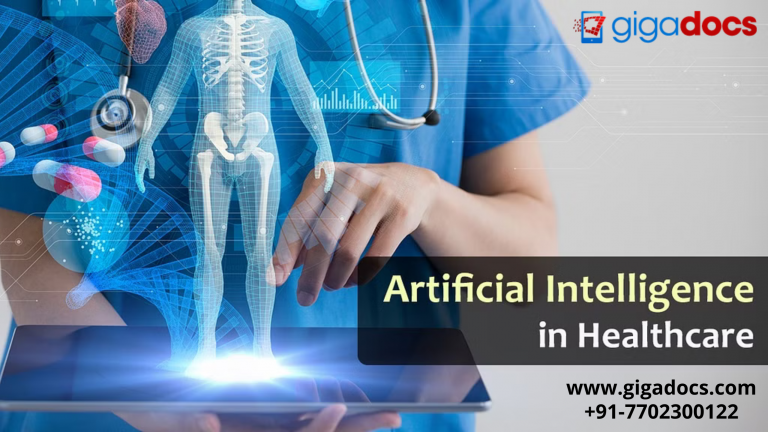Over the years, doctors have estimated someone’s risk of a heart attack using parameters that consider age, gender, smoking history, cholesterol, and blood pressure.
With the advent of Artificial intelligence, medical detection has witnessed significant changes; researchers have detected early signs of heart disease with an eye scan. A new AI system that examined eye scans was about 70% accurate at predicting a heart attack within the next 12 months.
In a recent development, a paradigm shift in the health tech industry is on the horizon, spearheaded by Sundar Pichai, CEO of Google. The recent announcement by Pichai revealed a groundbreaking development: using Google’s AI, cardiovascular events can now be predicted through an eye scan, signifying a potential departure from traditional diagnostic methods like CT scans, MRIs, and X-rays. This journey began four years ago when a joint team of researchers from Google and Aravind Eye Hospital, Chennai, embarked on a mission to develop an automated tool for detecting diabetic retinopathy, a leading cause of blindness globally.
AI into Healthcare
Artificial Intelligence models have opened up a world of possibilities for early detection of other diseases such as dementia, multiple sclerosis, Parkinson’s, Alzheimer’s, and even schizophrenia. For instance, the eye, specifically the retina, is a window into the body’s health. The rear interior wall of the eye, or the fundus, is filled with blood vessels; by studying their appearance, doctors can infer critical information like an individual’s blood pressure, age, and smoking habits, which are essential predictors of one’s health.
- AI and Mental health chatbots
Mental health chatbots using artificial intelligence are gaining popularity as health resources are stretched. While digital mental health tools have existed for well over a decade, there are now more than 40 mental health chatbots globally, according to the International Journal of Medical Informatics.
- Remote medicine
Telemedicine in the form of virtual doctor visits has become increasingly common since the COVID-19 lockdowns. In addition to those, AI is supporting other forms of remote medicine. Some facilities using AI for monitoring rely on it for conditions ranging from heart disease to diabetes. Hospitals also use teleconsultation to oversee patients, making it convenient to decide which could receive home care and which needed hospital treatment.
- Diagnostics
AI plays a vital role in healthcare center diagnostics. AI systems for spotting breast cancer can detect current issues and a patient’s likelihood of developing the disease in the next several years. Researchers have used trained algorithms to identify depressed people by listening to their voices or scanning their social media feeds.
- Improving patient positioning precision and CT image reconstruction
Radiology departments continue to face challenges in increasing patient volumes and ensuring consistency in image quality while improving operational efficiency. Computed Tomography (CT) remains one of the most widely used imaging modalities. Radiology departments have much to gain from AI-enabled solutions that help streamline CT workflows and maximize image quality.
- Detecting early signs of patient deterioration
Almost 1 in 5 patients in medical-surgical areas of hospitals will experience postoperative serious adverse events. Manual checks of vital signs can be time-consuming and are subject to human error. AI-enabled tools can help nurses and care teams identify early signs of events such as respiratory failure or cardiac arrest, allowing them to respond rapidly- by automatically monitoring vital signs and calculating early warning scores that signal possible patient deterioration.
What benefits does AI bring to Medicine and Healthcare
AI with eye scans could help determine the risk of someone having a heart attack more accurately, allowing early heart disease treatment. Let’s read about the other benefits that AI brings to medicine and healthcare-
- Personalized treatment plans: AI can help create personalized treatment plans for patients based on their medical history and genomic data. By analyzing large datasets and considering various factors, AI systems can suggest the most effective treatments and medications tailored to a patient’s needs, leading to better outcomes.
- Enhanced medical imaging: AI algorithms can analyze medical images, like X-rays, CT scans, and MRIs, with high accuracy and speed. AI-powered image analysis can help detect early signs of diseases, identify abnormalities, and assist radiologists in interpreting complex images, improving diagnostic accuracy and efficiency.
- Efficient healthcare operations: AI can optimize healthcare operations by automating administrative tasks, streamlining workflow, and reducing paperwork. Health chatbots and virtual assistants can handle routine inquiries, and appointment scheduling, freeing healthcare professionals’ time for more critical tasks.
- Predictive analytics and disease prevention: AI can analyze large datasets and identify patterns that contribute to the risk of developing certain diseases. By analyzing individual health records and lifestyle factors, AI algorithms can predict the likelihood of future health issues, enabling early intervention and preventive measures. This proactive approach can lead to improved population health and reduced healthcare costs.
Bringing Technology to Healthcare with Gigadocs
Gigadocs healthcare app brings healthcare to your fingertips with the Gigadocs telehealthcare app; with the Gigadocs app, you can book teleconsultations and consult with experienced doctors from the safety and comfort of your home settings.
Read well-researched healthcare articles and tips on the Gigadocs app, your one-stop solution for all your healthcare needs.
Download the Gigadocs app from-
- IOS App – apple.co/2W2iG4V
- Android App – bit.ly/33AQoRC
To know more e-mail, at info@gigadocs.com




